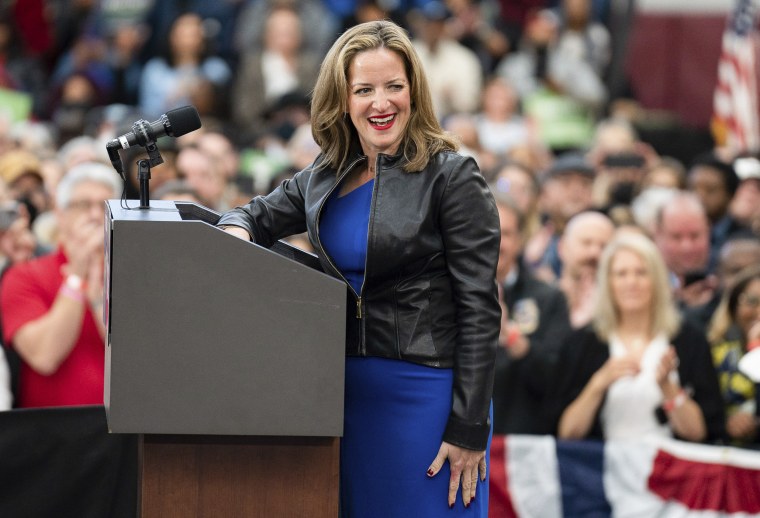In four crucial states, Democratic nominees for Secretary of State have garnered a larger share of the vote than the gubernatorial nominees at the top of the ticket in that state.
In all four states, the Republican nominees for Secretary of State have questioned or cast doubt on the 2020 presidential election. In some cases, like in Arizona, the Republican nominee for Secretary of State had even cast doubt on whether he would certify the 2024 presidential election if he were elected to the Secretary of State position.
This stance is especially important in Secretary of State positions, because in most states, the people serving in that role oversee election administration and the certification of statewide and presidential elections.
In Arizona, Democratic nominee for Secretary of State Adrian Fontes had received 980,143 votes, as of Thursday morning. Katie Hobbs, the Democratic nominee for governor, had just 953,783 total votes at that time and was only leading Republican nominee Kari Lake by less than a percentage point, while Fontes was leading Republican nominee for Secretary of State Mark Finchem by almost 5 percentage points.
In Nevada, like Arizona, the races for governor and Secretary of State hadn't been called yet, as of Thursday morning. But, Democratic nominee for Secretary of State Cisco Aguilar had received 420,409 total votes, compared to the 408,174 votes Democratic Gov. Steve Sisolak had received. That's a difference of over 12,000 votes.
Both Democratic nominees are trailing their Republican opponents, but Aguilar is trailing Republican Jim Marchant by less than half of a percentage point and Sisolak is trailing Lombardo by almost four percentage points.
In Michigan and Minnesota, Democrats have already been projected by NBC News to win the governor's mansion and the Secretary of State's office in both states.
Michigan's Democratic Secretary of State Jocelyn Benson won 2,458,611 votes, while Democratic Gov. Gretchen Whitmer won 2,426,729 votes. Benson beat her Republican opponent by almost 14 percentage points, while Whitmer beat Republican nominee Tudor Dixon by over 10 percentage points.
In Minnesota, Democratic Secretary of State Steve Simon won reelection with 1,346,824 votes, leading his Republican opponent by almost 10 percent. Meanwhile, Democratic Gov. Tim Walz was re-elected with 1,312,896 votes, leading his Republican opponent by almost eight percentage points.
That's an almost 34,000 difference in votes between two Democratic nominees on the same ballot.
This could be attributed to a few factors. Ellen Kurz, the president of iVote, a group working to elect Democratic secretaries of state, on Wednesday told NBC News that this shows that voters care about threats to democracy and are willing to turn out to prevent election questioners and doubters from running elections in battleground states.
But, it could also be attributed to a lack of support from outside groups for these Republican nominees.
In Arizona, Democratic groups spent over $5 million to promote Fontes in TV and digital ads ahead of the election. No outside groups spent on Finchem's behalf and his own campaign spent less than $500,000 on ads, according to AdImpact, an ad tracking firm.
In the state's gubernatorial race, Democrats spent almost $23 million promoting Hobbs and attacking Lake between September 1 and Election Day, according to AdImpact. And Republicans in that race spent over $12 million boosting Lake and attacking Hobbs.
In Nevada, Democratic groups spent over $7 million boosting Aguilar and attacking Marchant. Republican groups spent nothing to boost Marchant. Meanwhile, the state's gubernatorial contest attracted over $22 million for ads from Republicans and over $30 million for ads from Democrats.

